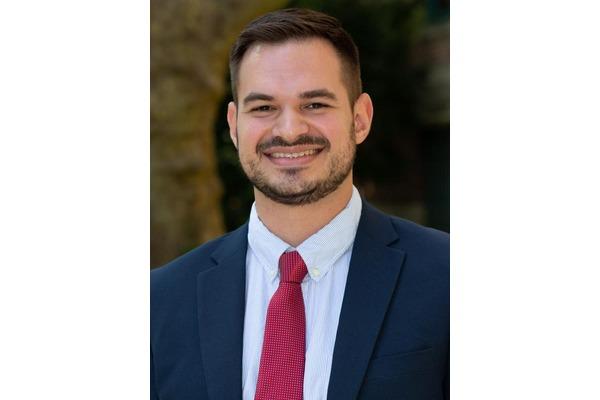Latin American Research Highlight: José Pérez

Many of us are familiar with the plight of Venezuelan refugees or remember the polemic 2016 impeachment of Brazilian president Dilma Rousseff. Some of us may have even considered how these events relate to the broader political and cultural context of Latin America or how specific social groups experience these circumstances differently. But few approach these questions with the expertise and in-depth research experience of José Pérez, a PhD candidate in International Relations and Comparative Politics here at OSU.
Academic Background
Originally from Tampa, Florida and of Cuban descent, José completed his BA in Political Science and Latin American Studies at the University of Florida, where he received a Foreign Language and Area Studies fellowship to spend a semester studying Portuguese in Rio de Janeiro. After his 2014 graduation, José worked as a Fulbright English Teaching Assistant Fellow at universities in Brazil. Already deeply interested in the country, he went on to earn an MA in International Strategic Studies from the Universidade Federal do Rio Grande do Sul.
It was while pursuing his MA that he began exploring many of the topics and themes that would later comprise his doctoral work. He researched Cuban-Brazilian international public health cooperation, specifically Mais Médicos, an initiative of then-president Dilma Rousseff that brought thousands of Cuban doctors to work in Brazil's health services. José's research was hands-on, including interviews with doctors, as well as interdisciplinary, touching on questions of public health, politics, and Brazilian culture.
José was in Brazil in 2016 when Rousseff was impeached, and the clear discourses of sexism and homophobia that surrounded the process were striking. Despite Rousseff's efforts to present an image of motherliness, José found that the prevailing social counter-narrative became one of incompetence, lack of "feminine" desirability, and dubious sexuality. José's qualitative research of this dynamic ultimately led to the 2022 publication of his article "The Dilma Rousseff presidency: from motherly discourses to queer impeachment" in the International Feminist Journal of Politics.
During this time, José also witnessed the arrival of Venezuelan refugees to Brazil and, through his research on Operação Acolhida, began viewing this migration through a lens that connected security politics and refugee integration. This work was recently shared in the Brazil Gateway's 2022 Summer Webinar Series, and the recording can be found here: "Migration Governance in Brazil: Security, Integration, and Operação Acolhida".
Research & Teaching at OSU
José came to OSU in 2019 to begin his doctoral studies in International Relations and Comparative Politics.
In 2021, José was selected as a Diversity Fellow by the American Political Science Association and also awarded a graduate research grant by the Mershon Center for International Security Studies, which allowed him to conduct preliminary fieldwork in Brazil this past summer. He is currently busy analyzing these data.
José's ongoing dissertation research examines the impacts of refugee/migrant resettlement policies in Latin America, specifically how securitization, race, gender, and public health politics impacts the lives of refugee/migrant groups, primarily Venezuelan refugees, living in Brazil.
Now in his fourth year at OSU, José is currently teaching POLITSC 3910: Identity Politics. He enjoys the opportunity to teach students about international and comparative politics in a highly interdisciplinary way that centers questions of race, gender, sexuality, and nationalism.
José is also busy working on two publications. The first is concerned with COVID-19 in Brazil and applies intersectionality to examine how different groups experienced the pandemic differently based on their identities. The second compares the policies of former president Luiz Inácio Lula da Silva ('Lula') and current president Jair Bolsonaro, applying post-colonial theory to analyze the role of racialization in their foreign policies.
Future Plans
In the near future, José hopes to have the opportunity to teach POLITSC 4240: Latin American Politics here at OSU.
José will be returning to Brazil, however, in 2023 to continue his research on Operação Acolhida and refugee integration, as he was recently awarded the prestigious Fulbright-Hays Doctoral Dissertation Research Abroad (DDRA) Fellowship, from the U.S. Department of Education. With the Fulbright-Hays grant, José expects to spend nine months conducting interviews and participant observations at three different field sites in Brazil: Porto Alegre, Manaus, and São Paulo.
Looking further ahead, José hopes to pursue a career in academia, with continued research on South-South migration and Latin American politics.
